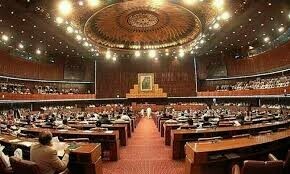SYDNEY: Outgoing chief of the Australian Cricketers’ Association (ACA) Paul Marsh has said that Cricket Australia’s (CA) desire to pacify India has made it a follower rather than a leader on the world stage, with potential dire consequences for the international game.
Marsh also said Australia’s star cricketers had agreed to dip into their own pockets — to the tune of $10.75 million over three years — to fund recommendations of the Australian Cricketers’ Association’s State of the Game report, the players’ answer to the Argus review. This will include $870,000 a year to help grade clubs retain experienced players and coaches.
While giving CA boss James Sutherland and his team credit for significant gains in Australian cricket on the commercial front and for the recent resurgence of the Test and ODI teams, Marsh believes the governing body’s tendency to put financial considerations first has led to many decisions being compromised.
‘Big Three’ taking control of ICC saddens Paul Marsh
He said he had no confidence that an incident such as the infamous Andrew Symonds-Harbhajan Singh ‘Monkeygate’ scandal would be handled differently in 2014 than it was in 2008, when Ricky Ponting’s team felt betrayed by its board in the belief it sought to safeguard India’s tour before supporting a player who had been racially abused.
“I think CA has shown all too often that it will succumb to the threats of the BCCI [Board of Control for Cricket in India] and every time they do this the BCCI gets stronger,’’ he said.
Marsh rated ‘Monkeygate’ alongside the recent pact between India, England and Australia to take control of the International Cricket Council (ICC) as the most disappointing events of his nine years in charge of the ACA.
“Domestically, CA is by and large doing a good job and credit should be given to its leaders,’’ he stated. “Revenues continue to grow on the back of increased attendances, TV ratings, sponsorships etc, and this has allowed CA to invest back into the game.
“Players have been major beneficiaries of this growth. The high-performance area of cricket has had an excellent last 12 months and we have all been buoyed by this.
“Internationally, I see CA as a follower rather than a leader. This has meant their decisions are compromised by their desire not to upset the BCCI. Why do they allow themselves to be compromised? It’s because they don’t want to risk the money that comes from India. At times they are too financially focused rather than driven by principles.
“The Andrew Symonds-Harbhajan Singh incident was handled disgracefully, in my view. Players and the integrity of the game were sacrificed in the interests of pacifying the BCCI on the back of a threat that they would withdraw the Indian team from the tour, which would in turn cost CA millions of dollars.
“CA’s decision not to call the BCCI’s bluff was the catalyst for where world cricket sees itself today. It also severely impacted Andrew Symonds’ life and therefore career. It still saddens me that such a brilliant cricketer was cut down in his prime,” he added.
Marsh fears the concentration of power and wealth among the strongest nations could lead to Test cricket being played between only three or four countries in the next two decades.
“I think smaller countries will have to focus their energies and resources on the limited-overs formats as they won’t be able to compete in Test cricket and therefore their investment will move away from domestic long-form competitions,’’ he said.
“The other major risk I see is the increasing competition between the scheduling of domestic Twenty20 events [in particular the IPL] and international cricket. There are already numerous examples of players choosing T20 events over international cricket, and I think there will be a tipping point for some countries where international series will be cancelled because the quality of players available will be substandard.”
Published in Dawn, August 7th, 2014













































